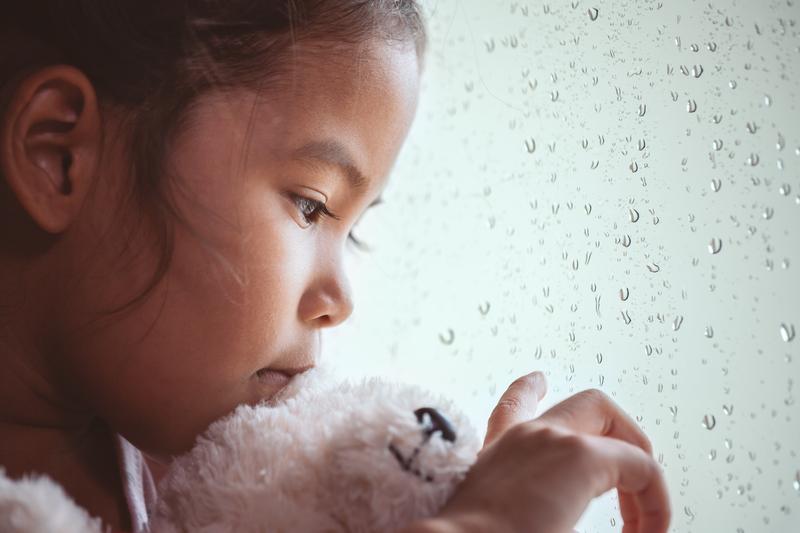How to Help a Child With Depression and Anxiety

Learn Warning Signs
Childhood depression and anxiety can often go untreated because parents, guardians, and caregivers have difficulty recognizing the signs of these illnesses. The first step to being able to effectively help your child with depression and anxiety is to know the symptoms. Symptoms of depression include, but are not limited to:
- Sadness
- feelings of hopelessness
- worthlessness
- feelings of guilt, anger, or irritability
- crying
- lack of energy
- difficulty concentrating
- thoughts of suicide
- loss of interest in hobbies or activities.
- Symptoms of anxiety include, but are not limited to:
- difficulty concentrating
- difficulty sleeping and frequent bad dreams
- angry or irritable outbursts
- constant worrying and negative thoughts
- feeling tense and fidgety
- not eating properly
It’s important to remember that not all of these symptoms need to be present for a child to experience depression and/or anxiety. However, these symptoms are helpful tools that can give you a clue as to what your child may be feeling. By learning these warning signs, you will be able to more quickly give your child the help they need to start feeling better.
Get Them Professional Treatment
Getting your child professional treatment is an important step to helping them maintain their mental health. There are many types of professional treatment out there. One good course of action is to make an appointment with a child psychologist who can help you set up a plan for optimal healing and recovery. Your child may also need to take medication to manage their illnesses. In cases such as these, your child’s psychologist can recommend a quality psychiatrist who can prescribe this medication.
Make Positive Lifestyle Changes
Along with formal, professional treatment, you can help your child’s mental health by encouraging a healthy, holistic lifestyle. Try to ensure that they sleep well, and consistently. Make sure your child is physically active, as exercise can help distract them from worries and relieve stress. Give them healthy, nutritious foods that will boost their energy levels. Set aside time for self-care, fun, and relaxation. There are even meal plans for kids that you can use to help if you can’t think of nutritious ideas for things to eat on your own. These lifestyle changes are simple, but they can make a big difference in terms of treating depression and anxiety.
Get an Emotional Support Animal
A pet can be a great companion for a child with anxiety and depression. An emotional support animal can provide comfort for your child when they’re sad, and help them to feel calm when they’re anxious. Many people with emotional support animals have found that having a pet boosted their self-esteem, helped them feel safe, and gave them an increased sense of purpose.
There are numerous puppy breeds that all have their unique characteristics and personalities. Labrador retrievers are some of the gentlest dogs around, so these will be a great choice. Beagles, Corgis, and Cavalier King Charles Spaniels are also wonderful ESA breeds.
Build a Strong Support System
In many cases, depression and anxiety can last for an entire lifetime. However, this does not mean that those who struggle with these illnesses are unable to live a happy, enjoyable life. You can increase your child’s chances of achieving this happiness by helping them build a strong support system.
A good support system can include family, friends, therapists, doctors, teachers, and clergy. Peer support groups can also be helpful for older children or teenagers.
Create a Safe Place
It is important for children who suffer depression and anxiety to be able to have the security of a safe place. You can create a safe place for your children by making a comfortable physical environment for them—somewhere they will feel secure, relaxed, and at peace. If your child struggles with intense anxiety, it can be helpful to include sensory grounding tools in this space. For example, keeping the space at a comfortable temperature, filling it with a relaxing scent, and stocking it full of familiar, tactile objects will help your child focus on simple sensory experiences instead of their emotional turmoil.
Reinforce Positive Truths
In addition to creating a safe physical environment for your child, you should also create a safe emotional environment for them. You can do this in part by reinforcing positive truths and challenging negative assumptions. For example, it’s easy for children who struggle with mental illness to absorb their disorder as part of their identity. Reminding your child that they are more than their diagnosis is essential. You should also remind them that a happy future is possible, that they won’t always feel worried or sad, and that they are valued as a part of your family.

